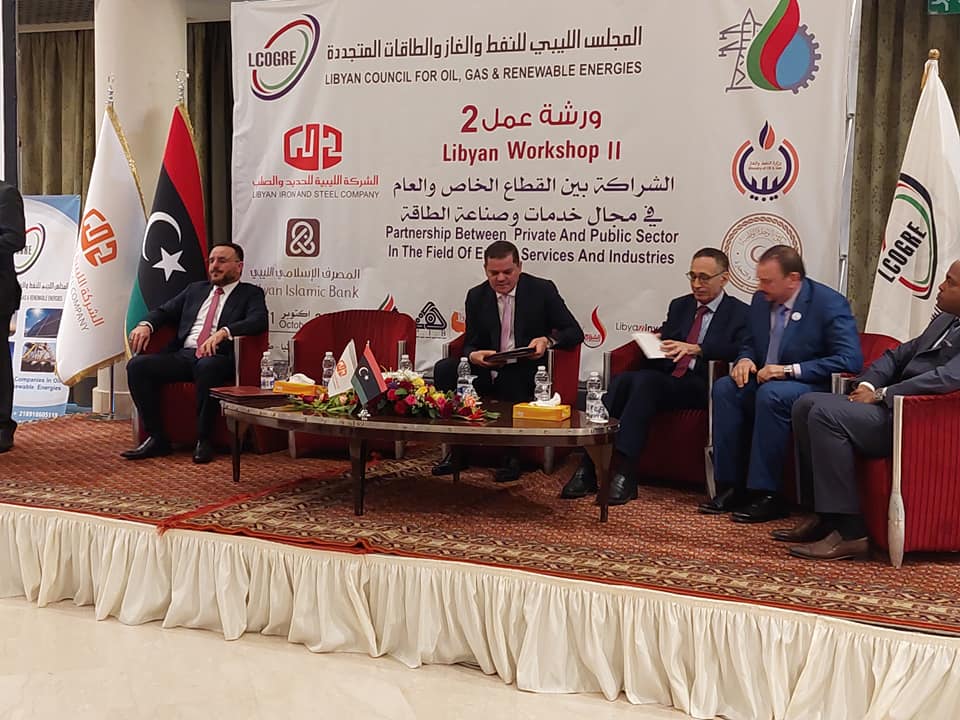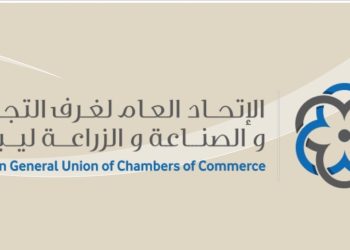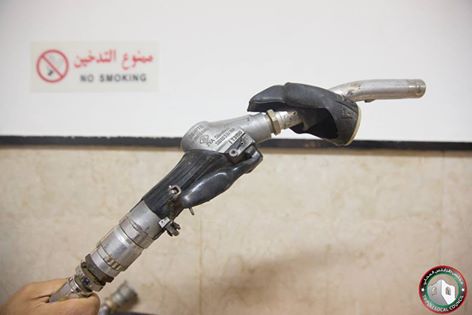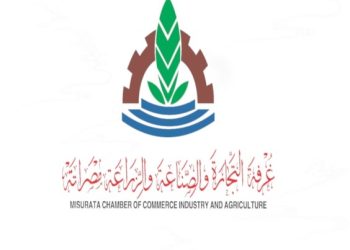By Sami Zaptia.
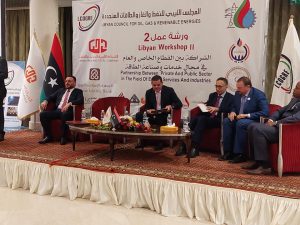
Tripoli, 26 October 2021:
Speaking at yesterday’s (PPP) workshop on partnership between the public and private sector in the energy sector, Prime Minister Abd Alhamid Aldabaiba said that there is a glass ceiling for Libyans preventing them from entering their country’s oil sector, including in tenders.
The event was organized by the private sector lobby group, the Libyan Council for Oil and Gas and Renewable Energy (LCOGRE).
The country’s oil sector should be open to Libyans and should help soak up the unemployed youth, he added. Aldabaiba complained that while 99 percent of Libya’s revenues are from oil, there is only one working oil institute.
As an example, he pointed out that many foreign companies were engaged in drilling yet few Libyan companies get drilling contracts.
The future should be the private sector
He said developing and encouraging the private sector should be a priority and that barriers to this should be broken. The future in the oil sector should be the private sector companies and not even state sector companies, he emphasised.
Oil services open for briefcase foreign companies
In the oil services field, Aldabaiba complained that foreign ‘‘briefcase’’ companies (those created overnight or that have no track record) come to Libya and are able to get services contracts with barriers (often so-called prequalification processes) existing at the expense of Libyans.
He reiterated that the Libyan state must facilitate participation for the Libyan private sector in the country’s oil industry.
Regional development
The Prime Minister also recognized that those living in the oil producing regions of Libya must not be the last to benefit from the country’s hydrocarbon revenues. Reaching out to possible Federalists/separatists and Hafter supporters, he said people in the eastern oil Crescent should have a priority in the sector.
Renewables
Aldabaiba said Libya’s peers had advanced in the Renewable Energy (RE) sector, but that Libya had made a start. He warned that nobody will buy Libya’s oil in maybe one or two decades, and that there was pressure on Libya to reduce its carbon footprint and go greener.
He warned that Libya had not exploited its oil wealth over the last decade or so like its peers had but that a small window of opportunity remained to make up the lost ground. Libya had to exploit its oil reserves to rebuild over the next decade, he urged.
Two new Renewable Energy contracts with Eni and Total worth US$ 12 and 14 billion
He said Libya had to sign contracts with large oil companies specialised in RE and then announced two new RE projects with Eni (US$ 12 bn) and Total (US$ 14 bn). These will produce electricity in a short period of time, he explained without specifying the timeline.
Libyans must stop fighting over oil and increase production quickly
He said Libyans needed to stop fighting over oil and needed to increase production quickly.
Frozen assets abroad
Aldabaiba warned that it was going to be difficult to return Libya’s frozen assets abroad and that many individuals had stollen some of the country’s overseas assets.
He also warned that liberating the banking system was important to stop the outward flight of capital as many were smuggling their money abroad to invest it there.
Libyan banks need to activate their underexploited cash reserves
He also bemoaned the fact that Libya’s banks were sitting on mountains of cash earning pitiful returns which ordinarily should be powering investment in the economy through various types of finance products. This money is being wasted he said.
There can be no more reliance on the state he warned and urged the private sector to be active. He urged Libya’s banks to back the private sector.
Loans through leasing initiative
Aldabaiba said he will be announcing a LD 12-13 bn initiative for loans through leasing (the government had in fact already announced this earlier). Through leasing, banks will continue to own equipment/machinery purchased by their clients until fully paid for, he explained. The state will act as the guarantor for these loans.
He said Libyans had suffered for 50 years and now needed to benefit from their assets and wealth.
Vowed to consider workshop’s demands and recommendations
He urged the organizers of the event to come up with implementable outputs and send him the workshop’s recommendations and demands for consideration.
In conclusion, he said he was counting on the private sector that was forced to go into hibernation (by the Qaddafi regime) to have the energy and knowhow to move Libya forward.
